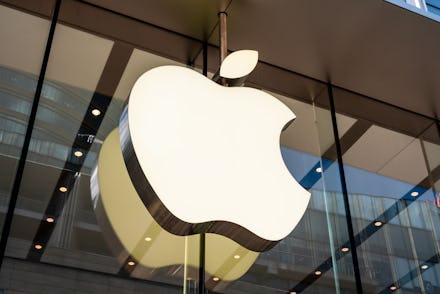Apple reportedly dropped end-to-end encryption plans for iCloud to appease the FBI

If you're an iPhone user, backing things up with Apple's iCloud service is useful. You can save photos and texts without ever lifting a finger, and when you're ready to swap to a new phone, you can bring back all your data in the form of a backup that makes setup a snap. These backups are important (and private), so it would make sense that Apple stores them in a private manner. But though Apple at one time may have had plans to offer end-to-end encryption, according to a new report from Reuters the iPhone manufacturer abandoned plans to do so after receiving complaints from the FBI.
Sources told Reuters that Apple's pivot came after members of the FBI noted that the move would end up harming its investigations. End-to-end encryption, unlike the format Apple uses now, would mean that it would be virtually impossible to unlock encrypted data, whether asked to do so by a law enforcement unit or otherwise, even with a court order. Agents reportedly told Apple that end-to-end encryption on device backups would, in fact, keep the agency from using an important tool for criminal investigations.
Though Apple has refused time and time again to unlock iPhones, as well as offer "backdoor" access to them, iCloud searches have been accomplished without the need to unlock phones in the past, and Apple has cooperated with several law enforcement decryption requests. Building a "backdoor" into a device that could allow for encrypted data to be accessed is inherently a bad idea, considering the fact that it's a risk that could allow those with malicious intent to access sensitive information, in addition to lawmakers and politicians with legal standing to do so.
"Legal killed it, for reasons you can imagine," one former Apple employee confirmed to Reuters when asked about reasons the end-to-end encryption program was discontinued. They explained that Apple didn't want to be caught up in additional public rhetoric over "protecting criminals," as it was accused of doing during the infamous case of the 2016 mass shooting in San Bernardino, CA. During the investigation, the FBI requested Apple to unlock an iPhone used by one of the suspects. Apple initially refused, so the FBI found a contractor to do so, dropping Apple from the proceedings. More recently, Apple was asked to unlock the phone used by the suspect in the deadly Pensacola Naval air station shooting.
"They decided they weren’t going to poke the bear anymore," the source continued. Another employee still stated that it was "possible" the project was abandoned for different reasons. This could have included a concern for customers who would end up locked out of their data, which would have made a difficult situation for those simply trying to access their iCloud backups again.
Apple's decision not to pursue end-to-end encryption on its backups has, in essence, made law enforcement agencies' jobs easier. It hasn't, however, given users more options when it comes to privacy. And one has to wonder which is the better end of the spectrum in situations like these.